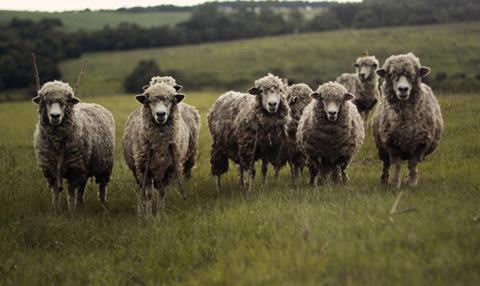The National Sheep Association (NSA) says there is still time for the UK Government to ensure the Australia Free Trade Agreement (FTA) avoids causing market disruption and undermining animal health and welfare standards.

Without proper scrutiny into the terms of the Australia FTA, damaging consequences for the UK sheep industry will be difficult to avoid, NSA warned.
NSA believes there is still time for a supportive government to consider the safeguards necessary and ensure adequate measures in the FTA to avoid market disruption and the undermining of aspirations for high standards for animal health and welfare, and the farmed environment.
Following the agreement in principle (AIP), NSA urged ministers, before the AIP is converted into legal text, to heed the warnings of UK farmers and consumer groups, and to urgently give adequate time for the new Trade and Agriculture Commission to be established to allow proper parliamentary scrutiny – and then to listen to the advice given.
In a statement, NSA stressed: 'The AIP outlines the Tariff Rate Quotas (TRQs), which for lamb will more than triple immediately from roughly 8,000 tonnes annually to 25,000, and then grow over ten years to 125,000 tonnes - at current consumption rates that is equivalent to more than 40% of the UK’s total sheepmeat needs. In addition, the New Zealand Trade Minister has already stated they will expect their FTA to be treated similar to that of Australia. The New Zealand quota is already currently 110,000 tonnes and this statement is a stark reminder of the dangers of a precedent being set.
'The worst-case scenario is that more than 80% of sheepmeat consumed in Britain could be imported, much produced in ways that wouldn’t be allowed by farmers here. With such pressure from the two biggest exporting sheepmeat nations, there will inevitably be times when a price war comes into play.'
"Sacrificial lamb for the benefit of other industries"
NSA chief executive Phil Stocker said: “NSA warned from day one that the UK sheep sector could end up being the sacrificial lamb for the benefit of other industries in a trade deal and ministers could still step in to ensure this doesn’t happen. We should be looking at carcase equivalent volumes rather than the option to fill quota with a limited range of cuts, and we should also consider seasonal limits to avoid clashing with our peak production months.
“UK sheep farmers also need assurances that in case of market disruption quotas could be halted. At a time when farmers are being required to be more profitable, maintaining good and stable prices will be an important part of achieving this. There is also very different understanding of the meaning of equivalence of standards and NSA’s view is that this should boil down to what the public and the Government want and expect of our farmers.
"If there are things required of us here, then it’s not unreasonable to require the same from those entering our market. NSA is also firmly against segregated supply chains where certain lambs may fit our requirements while the remainder of the industry still continues to benefit from cost saving practices that don’t meet our ideals."
Safeguards to protect British farming
NSA welcomed the deal having a dedicated chapter specifically on animal welfare, including measures recognising the importance of high levels of animal welfare protection and non-regression. However, NSA stated that according to the Animal Protection Index which ranks countries on their commitment to protect animals in its legislation, improve animal welfare and recognise animal sentience, the UK has a B rating for welfare standards, whilst Australia fairs less well with a D rating. NSA highlighted that this is an important factor for UK society as well as the UK Government and one that needs to set clear expectations aligned with the UK world-leading standards.
Mr Stocker continued: “A trade deal like this should benefit both sides and while it is highly unlikely the UK will be exporting sheepmeat to either Australia or New Zealand there is demand in both countries for our sheep genetics – trade in embryos and semen. Yet we note a clause that allows each nation to apply health and phytosanitary controls and there is concern that Australia will now use this to maintain their unjustified ban on breeding material from UK as part of the Small Ruminant Rule.
“The AIP sets out in principle the jointly agreed terms to be included in the FTA. It should not itself be assumed to be the final treaty commitments contained in the FTA, and we now need to take every opportunity to identify and build in safeguards to protect British sheep farming”
This story was originally published on a previous version of the Meat Management website and so there may be some missing images and formatting issues.















